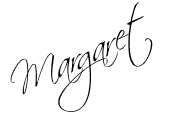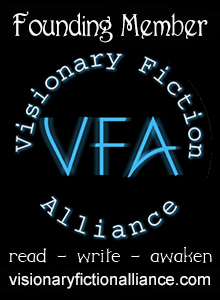
Note to Reader: My friend and critique partner, Dorothy Ann Skarles, has generously offered to share one of her lessons on how to create a memoir. Dorothy taught memoir writing at Lodi Adult School until her retirement. She is the author of two novels and one non-fiction book, Learning to Write the Easy Way, published by Twilight Times Books.
Lesson 1: A memory is a gift to the family.
Every passing minute of each bygone day is a memory that lives in our hearts forever. But to recapture those fleeting moments from vanishing, we dash them off into powerful words so others may read the way we played, loved, ate, and drank our follies away.
It is often quoted that “the pen is mightier than the sword” and I believe this to be true. Writing is an opportunity to pass on your values and tell what your life was like as you traveled through the years. Written words are truly the mirrors to our souls.
It does not matter if you call your book a memoir, a biography, or an autobiography. They are all the same in the respect that they are written by you and from your memory. Your age doesn’t even enter into it. The words that burn in your heart and the thoughts that breathe out your life are ageless and should be written whether you are young or old.
Memories not written down are memories lost forever. So don’t wait on writing about how you lived your life. Snatch, seize, and enjoy every passing minute of your memory and start writing at whatever age you are. And when you can’t write, record your words and reproduce them later on paper. The quote “Better late than never,” is a motto we should keep on our writing desk along with “Do it now!”
The Introduction Page is the first page of your book. It can also be called an acknowledgment, a preface, a foreword, or even a dedication. This page can be short and to the point or long on explanations. What you write will answer the question of why you wanted to write a memoir for the family and future generations to read.
Now on paper, write: “I am writing my life story because…
Here’s an example written by a student writing about his grandparents.
I am writing my life story because when I was very young, I remember sitting by the kitchen table and listening to the old folks talk about growing up. My grandmother talked about Germany and coming to America, while my grandfather told how the United States government informed his parents that they could no longer live in North Carolina and how they traveled the trail of tears to Mississippi.
My other grandfather, who came to the United States at seventeen, talked about growing up in Greece and how much more he had to learn than everyone else because, as we all know, everything in the world was invented by the Greeks. My other grandmother, his wife, talked about traveling to America from France.
And you know what? A German woman married an American Indian man, and a Greek man married a French woman in America, and all I could think about as I sat listening was how a loaf of bread cost only two cents. Really, you could buy a hamburger and a malt for a nickel. That’s how it was way back then. But now it’s time for the rest of the story.
Take a moment to think of what you would like to say. What would you like to leave for your family and future generations to read?
Would you like to tell them how you lived and the things you did, what kind of school you went to or the games you played?
Do you want to write about the job you had in World War II? Does your family want you to write a history on their ancestral background and about the people they do not know? Do you want to write about your garden hobby or write family recipes for others to enjoy?
Perhaps you would rather focus on what life was like being a dancer in the ballet or living on a farm? You might even want to write about all the boy friends or girl friends you dated. Or do you want to set the family straight on why you divorced or why you dropped out of school.
Keep in mind that the first thirty to forty years give you the text and the next thirty to forty years supply the commentary on it. So don’t wait! This author will help give you ideas to write your legacy in the great art of living.
You have now written page one in your memoir.
Feel free to leave any questions you may have about your writing project under comments below.
Happy writing.
Dorothy
Thanks as always for stopping by,


This is interesting. I've never seen my life as particularly interesting, but there is merit to writing about your life regardless of how exciting or non-exciting it is to me. However, my story may be valuable to my family now or in the future. Perhaps I'll ponder on the notion of begining my memoir. Thanks for sharing, Dorothy!
Thank you Cathy. My next lesson will be on starting how you got your name. Maybe that will help to get you started. Things in life that we know about are changing so fast, the new generation (children) should know how you lived and what you had to do to live it. And hey, I remember when gasoline was fifty cents a gallon. Now that makes you really cry. And that didn't last long.
My mother wrote her memoirs and made them into books at Kinko's. Then she gave each of her children and grandchildren a copy. There were so many things about her and her life in Holland, her experiences during World War II, and her experiences when she first came to the USA as an immigrant that we never would have known without her generous gift to us all.
It seems I lost my post. I was saying that I learn a lot about people and the kinds of life they had from writing their life stories. I discovered we can all laugh or cry at the same things. Even as strangers, we are not so different from each other. And children who are now all grown-up are surprised to find that they are beginning to know their parents from what they read in a memoir.
Dorothy Skarles is right on target with "memiors not written down are memories lost forever – do it now!"
The examples listed should spark interest in geting our life's experiences down on paper whether they be humorous or sorrowful, future generations really don't know what happened to us in the 'good old days.'
Anyone writing their recollections of living, laughing, loving or regretting and learning from their triumphs and mistakes, will provide enjoyment for thos who read memiors. Thanks Dorothy. Bernadine
Thanks Bernadine, for the insightful comment. When writing a question for others to answer, I do try to ask myself what answers are needed to fulfill,clarify and work through the question that you have some where in your memory.